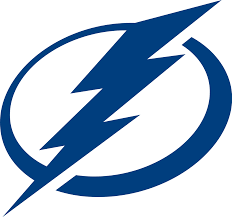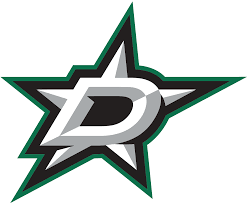It’s not June, but it is the Stanley Cup Final. This year’s matchup will be between the Western Conference champion, Dallas Stars, and the Eastern Conference champion, Tampa Bay Lightning.
For the first time in recorded history, the Stanley Cup will be awarded in the month of September.
If you’re still in the bubble, congrats on making it this far!
If you were in the bubble, but were eliminated, you still went through a lot of things most of us will never get to know or experience.
If you have yet to be in the bubble– stay tuned for 2020-21 season announcements, because National Hockey League commissioner, Gary Bettman, indicated on Saturday that the 2020-21 regular season could start in mid-December or sometime in January with the expectation still set on a full-82 game schedule and a return to the usual 16-team playoff format.
The entire hockey world (well, those that care about the NHL anyway) shifts its focus to that of the 2020 Stanley Cup Final.
It’s time for one team to win four games before the other team and raise the Cup high over their heads– even though nobody quite knows what a postgame celebration might look like, let alone what travel plans might be in store for Lord Stanley’s mug as it usually ventures across borders for a day with each member of the winning team.
For the first time since 2000, the Stars are in the Final.
They last lost to the New Jersey Devils in seven games in their most recent Final appearance and Dallas has witnessed a generation pass, as well as players come and go between now and then.
For the first time since 2015, the Lightning are in the Final.
They lost to the Chicago Blackhawks in six games in that Final– which was just their second appearance in franchise history– and Tampa hasn’t seen much change, save for the acquisition of youth and glue guys to go along with their “stick to the plan” regimen since then.
(2) Tampa Bay Lightning (43-21-6, 92 points) vs (3) Dallas Stars (37-24-8, 82 points)
Tampa: 70 games played, .657 points percentage, 35 regulation wins.
Dallas: 69 games played, .594 points percentage, 26 regulation wins.

The Tampa Bay Lightning were led by Nikita Kucherov in regular season scoring with 33-52–85 totals in 68 games played prior to the shortened conclusion of the regular season due to the ongoing COVID-19 pandemic.
Steven Stamkos had the second-most points on the roster with 29 goals and 37 assists (66 points) in 57 games before missing all action since the league’s return due to injury. He had core muscle surgery in mid-March, skated in June, but was not cleared to play in Tampa’s exhibition, Round Robin or playoff matchups since then.
There is currently no known timetable for his return.
Meanwhile, Brayden Point (25-39–64 totals in 66 games) continue to emerge as a high-caliber center with the third-most points on the Lightning roster in the 2019-20 regular season.
Tampa rolled through the Columbus Blue Jackets in five games in the First Round– avenging Columbus’ sweep of the Bolts in the 2019 First Round in the process.
Then the Lightning made a repeated effort of their 2018 Second Round matchup with the Boston Bruins, eliminating the B’s in five games once again.
In the Eastern Conference Final, the Bolts were met with their toughest opponent yet as the New York Islanders took Tampa to six games before succumbing to the almighty powers that exist for the Lightning.
Tampa advanced to their third Stanley Cup Final appearance in the process.
They have been almost untouchable past regulation, but they are beatable as the Islanders pointed out in double overtime in Game 5 of their series.
Kucherov (6-20–26 totals in 19 games played) leads the Lightning in playoff scoring, while Point (9-16–25 totals in 17 GP) is hot on his tail– as long as he is healthy and in the lineup.
Victor Hedman leads all defenders with the most goals this postseason with nine and has six assists to go along with 15 points in 19 games for the third-most points on Tampa’s playoff roster.
Ondrej Palat (13 points in 19 games) and Yanni Gourde (12 points in 19 games) round out the top-five in playoff scoring for the Bolts.
Meanwhile, after finishing as a finalist for the Vezina Trophy for the 2019-20 regular season, Andrei Vasilevskiy (35-14-3 in 52 games played, 52 starts, 2.56 goals against average, .917 save percentage and three shutouts in the regular season) has posted a 14-5 record in all 19 games for Tampa in the 2020 postseason.
Through he has yet to record a shutout in the 2020 Stanley Cup Playoffs– let along in his entire postseason career- Vasilevskiy has accrued a 1.82 GAA and a .931 SV% without yielding time in the crease to his backup, Curtis McElhinney (8-7-3 in 18 games, 18 starts, 2.89 GAA, .906 SV% and one shutout in the 2019-20 regular season).
Head coach, Jon Cooper, leads the Lightning behind the bench, while General Manager, Julien BriseBois hasn’t had all that much to do during the season, save for the important acquisitions of Blake Coleman and Barclay Goodrow to add speed and grit to their bottom-six forwards.

The Dallas Stars were led by Tyler Seguin in regular season scoring with 17-33–50 totals in 69 games played before the 2019-20 regular season was cut short by the pandemic.
Jamie Benn had 19 goals and 20 assists (39 points) for the second-most points for the Stars in 69 games, while Miro Heiskanen had the third-most points for Dallas with 8-27–35 totals in 69 games in his sophomore campaign.
Dallas trailed, 3-0, within the first seven minutes of Game 6 of their First Round matchup with the Calgary Flames as a Game 7 was all but likely to be forced and some left scratching their heads regarding the Stars.
The Stars came back to win, 7-3, and eliminated Calgary in six games in the 2020 First Round thanks to a five-point night (including four goals) from Denis Gurianov.
After the Colorado Avalanche forced a Game 7 in their Second Round matchup with Dallas, Joel Kiviranta became the first rookie to complete a hat trick with a game-winning overtime goal in a Game 7 to send the Stars to the Western Conference Final.
From there, Dallas beat the Vegas Golden Knights in five games to advance to their fifth Stanley Cup Final appearance in history.
Sometimes it pays to be good. Sometimes it pays to be lucky.
Other times it pays to be good and lucky– and that’s how the 2020 postseason has gone for the Stars.
In the postseason, Heiskanen has emerged as Dallas’ best player with five goals and 17 assists (22 points) in 21 games played. Heiskanen is on track to setting some franchise records as long as nothing cuts his postseason run short.
Benn has the second-most points on the playoff roster with 8-10–18 totals in 21 games, followed by Gurianov (9-8–17 totals in 21 games) for the third-most, John Klingberg (3-13–16 totals in 20 games) for the fourth-most and Joe Pavelski (9-5–14 totals in 21 games), as well as Alexander Radulov (8-6–14 totals in 21 games) tied for the fifth-most points on the Stars this postseason.
Anton Khudobin (16-8-4 in 30 games, 26 starts, 2.22 GAA, .930 SV% in the regular season) is the de facto starting goaltender with Ben Bishop (21-16-4 in 44 games, 43 starts, 2.50 GAA, .920 SV% and two shutouts in 2019-20) out due to injury for most of the postseason.
Khudobin’s spectacular run to the Final at 34-years-old has come on the backs of a 12-6 record in 19 games (18 starts), as well as a 2.62 GAA, a .920 SV% and one shutout in that span.
Bishop made three appearances in the 2020 postseason, posting a 1-2-0 record with a 5.43 GAA and an .844 SV% in the process.
Meanwhile, Jake Oettinger made his NHL debut– the second goaltender to make his NHL debut this postseason, joining Dan Vladar of the Boston Bruins in doing so– to the tune of a 0-0-0 record in one relief appearance with a 0.00 GAA and a 1.000 SV%.
He had five saves on five shots against in 18 minutes of gameplay.
Rick Bowness took over as the interim head coach for the Stars on Dec. 10th after Jim Montgomery was fired due to unprofessional conduct (Montgomery entered rehab for alcohol abuse and has since rejoined the league as an assistant coach with the St. Louis Blues).
Dallas General Manager, Jim Nill, hasn’t rocked the boat with any major player acquisitions during the season, but certainly added to the depth of veteran experience with the additions of Pavelski and Corey Perry in free agency.
The Stars went 2-0-0 against the Lightning in the regular season– having won both games in overtime.
Khudobin made 45 saves on 48 shots faced in his, 4-3, win at Amalie Arena on Dec. 19th, while Bishop earned the overtime win with 23 saves on 25 shots faced in a, 3-2, Stars victory on Jan. 27th at American Airlines Center.
Home ice means next to nothing in the bubble.
The Stars are this year’s dark horse team that went on a run that doesn’t seem to show any signs of stopping anytime soon.
That said, the Lightning are supposed to be the team to beat this year.
If it goes short, expect Tampa to be the team leaving Edmonton with the Cup, but otherwise the writing is on the wall for this year’s Final to go all seven games with the Dallas Stars emerging victorious with their second Stanley Cup ring in franchise history.
There’s just too much that they’ve already overcome to not be in their favor ultimately.
Regular season outcomes:
4-3 F/OT DAL at Amalie Arena on Dec. 19th, 3-2 F/OT DAL at American Airlines Center on Jan. 27th
Schedule:
9/19- Game 1 DAL @ TBL in Edmonton 7:30 PM ET on NBC, CBC, SN, TVAS
9/21- Game 2 DAL @ TBL in Edmonton 8 PM ET on NBCSN, CBC, SN, TVAS
9/23- Game 3 TBL @ DAL in Edmonton 8 PM ET on NBCSN, CBC, SN, TVAS
9/25- Game 4 TBL @ DAL in Edmonton 8 PM ET on NBC, CBC, SN, TVAS
9/26- Game 5 DAL @ TBL in Edmonton 8 PM ET on NBC, CBC, SN, TVAS*
9/28- Game 6 TBL @ DAL in Edmonton 8 PM ET on NBC, CBC, SN, TVAS*
9/30- Game 7 DAL @ TBL in Edmonton 8 PM ET on NBC, CBC, SN, TVAS*
*If necessary



You must be logged in to post a comment.